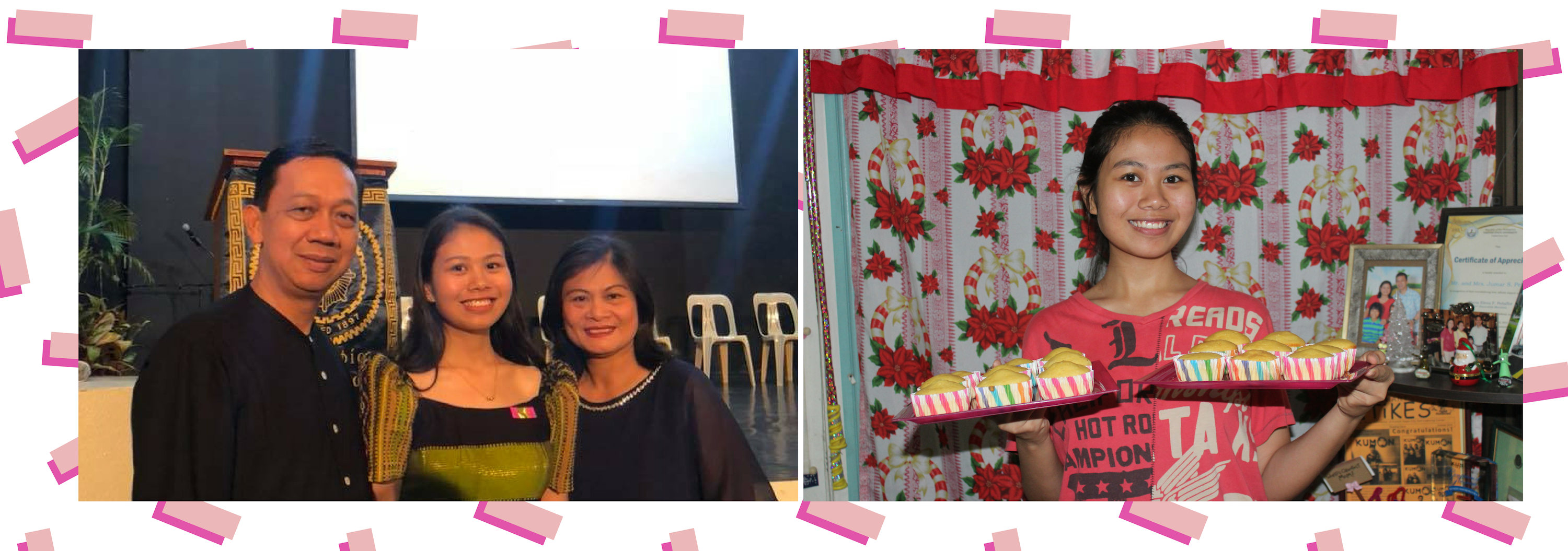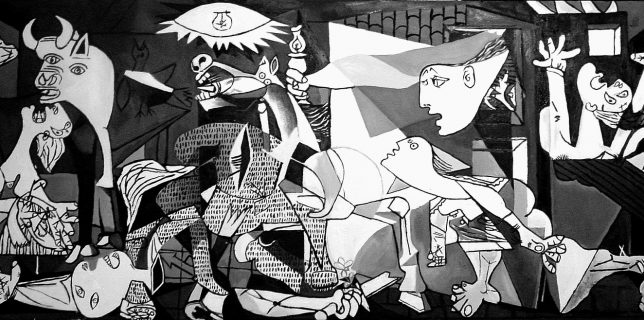Welcome to the blog. I am Maria Elena Peñaflor or simply Len. I am now in my fourth year of studying BS Human Ecology at the University of the Philippines Los Baños. Originally, I chose the course due to my father’s influence, but over time, I have learned to love it and to appreciate its application in real life. My hobbies include reading and baking sweets, though I can’t seem to follow the recipes exactly.

In this blog, I share a piece of me, especially my thoughts when it comes to art. You see, during my childhood years, I never thought much about art as I did not believe myself to be an artist. My young mind thought that artists were only those who can draw really well. However, as I grow older and my views widen, I have realized that art is not confined to that.
So far, my philosophy is that art is the representation of our truth. I believe that art serves as an avenue to express human experience in which experience encompasses not only what humans have gone through in the past, but also their thoughts, emotions, beliefs, opinions, and worldviews.
One of the foundations of my art philosophy is Pablo Picasso’s statement which says that art is a lie that makes us realize the truth. Picasso’s painting called Guernica (1937), was about the Nazi’s bombing during the Spanish Civil War. With the juxtaposition of figures, one may not see the point of it. However, it is actually an artwork that conveys the message of how terrible the war was (Routledge, n.d.). The painting is the the lie since it is nowhere near the real scenario,but it represents the truth- the truth of the situation during the war.

Art, as representation of truth, does not have to be an exact replica of reality. It needs not to be in perfect form as long as it conveys the truth of a situation or of an experience. Art as truth is not limited to what is seen, but extends to what is felt or experienced.Since art represents our truth, it may vary from one person to another. How one expresses his or her visions may be different from how another one would.
An artwork is limited by a certain medium like a poem, theater play, painting, and so much more. However, what it conveys is beyond that. For example, an artist who feels deep sorrow may write a poem that evokes the similar emotion from the reader. That kind of art represented the truth of the author’s emotions. In that way, it became an avenue for the author to express human experience.
As an expression of human experience, art can be related to the Marxist view. Richard Clarke (2017) said that to understand the work deeper, the Marxist approach emphasizes the historical background of and relation to society of the artwork or even the artist. Clarke said that Marxist art includes the social and historical context of an artwork and that Marxists believe that conditions of creations help in defining the art (Clarke, 2017). The Marxist view supports why art is an expression of human experience since artworks are not just about the form or the piece itself- it is also influenced by its context.
Presently, that is my philosophy on art. It was developed through what I have learned and what I have experienced. The following blog entries are projects done in our ARTS 1 class this semester under Sir Emmanuel Dumlao. I hope that you take a look and see how I express my experiences through the works. Thank you for dropping by!
Sincerely,
Len
References:
Clarke, R. (2017, October 14). What Do Marxists Have To Say About Art?. Retrieved from ttps://culturematters.org.uk/index.php/culture/theory/item/2626-what-do-marxists-have-to-say-about-art
Routledge. (n.d.). Art and Truth: ‘Good art should illuminate our experience or reveal ‘truths’’. Retrieved from http://documents.routledge-interactive.s3.amazonaws.com/9781138793934/AS/Thevalueofart/Truth.pdf